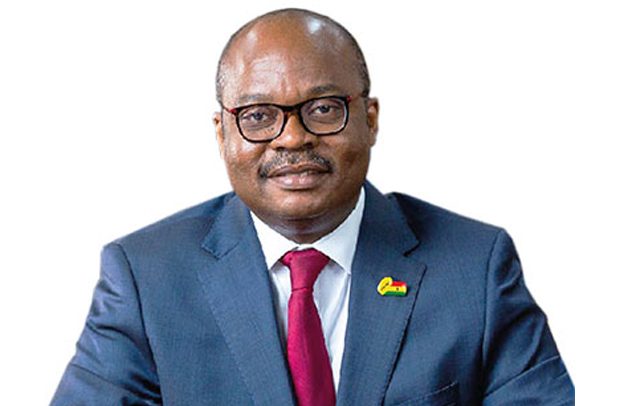Dr. Ernest Addison
THE CENTRAL Bank has urged Government to reprioritise its existing spending programmes to ensure fiscal and debt sustainability.
This is because fiscal authorities in emerging markets and developing economies (EMDEs) including Ghana, are tipped to face tighter financing conditions, higher borrowing costs amid elevated debt levels.
Dr. Ernest Addison, Governor of the Central Bank, who gave the advice, said “significantly, more challenging global context as the global economy is expected to experience sharp deceleration. Amid higher commodity prices, supply disruptions, inflation has surged across most countries. Global financial conditions have tightened and borrowing costs have increased particularly for EMDEs.”
According to him “The slowdown in advanced economies is resulting in spillovers to EMDEs which have not fully recovered from the COVID pandemic, amplifying the effects of pre-existing headwinds to growth including from higher inflation, tightened financial conditions, and weakened demand.”
He said the bank discovered that akin to the slowdown in global growth, domestic growth was moderating, as high inflation, supply bottlenecks, and exchange rate uncertainty acted as a drag on economic activity.
“The softening of business and consumer confidence since the last quarter of 2021 and the measured CIEA growth are providing evidence of this slowdown,” he said projecting that “GDP growth will likely slow down to within 3.7- 4.5 percent from the projection of 5.8 percent for 2022.”
“The financial sector indicators remain healthy, with some improvement in asset quality reflected in the lower NPL ratios compared with April 2022.
“However, the recent developments in the macro economy may pose some upside risks to the sector’s outlook and will require strong risk management by the industry and effective supervision,” he warned.
The execution of the budget has been challenging against the backdrop of macroeconomic developments, he said adding that for the first five months of the year, available provisional data shows a higher deficit relative to programmed, driven mainly by significant shortfalls in revenues relative to projections.
He continued that “The revenue underperformance reflected delayed implementation of several new revenue measures announced in the budget. On the expenditure side, higher interest payments led to some pressures despite restraint on primary expenditures especially on capital expenditures which has declined markedly.
“Financing of the budget was entirely met from domestic sources during the first half of the year as planned borrowing from international sources did not materialise.”
“The outlook is for continued tightened borrowing conditions and this underscores the need to reprioritise spending programmes within the available financing envelopes.
“The committee noted that inflation has persisted on an elevated path. A detailed review of the consumer basket shows that although initially driven by supply side shocks, the initial relative price changes have broadened to almost all the items in the consumer basket. Over 80 percent of the items in the basket recorded inflation above 20 percent. Inflation perceptions and expectations, as revealed in the bank’s surveys of consumers and businesses, have increased, and influenced agitations for Cost-of-Living Allowances in workplaces,” the Governor noted.

